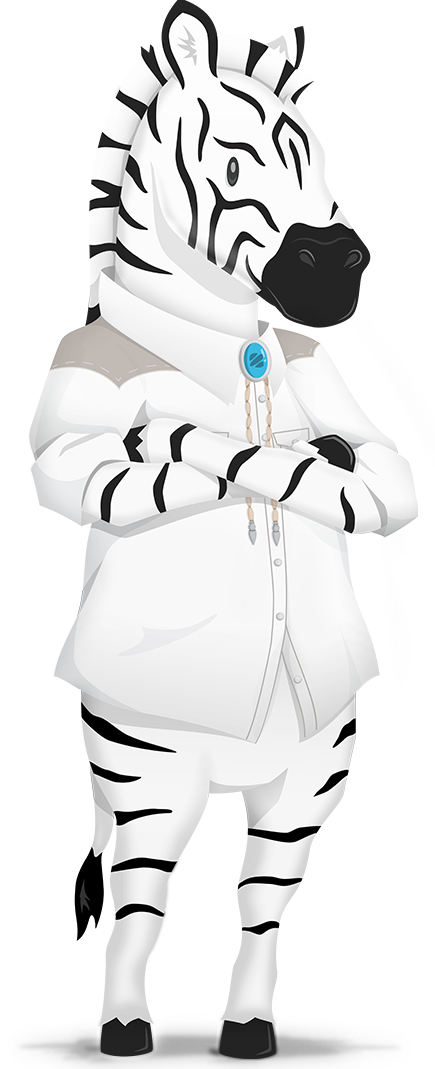The Zebra is Making Auto Insurance Black and White
Hunting for an auto insurance policy can be a pain. You might need to fill in all your information to get a quote and then do that over and over again to try and find the best price. Comparing the fine print can be difficult as well, particularly when you’re unsure what to look for or what the terms mean. Then, once you have insurance, you might still get bothersome phone calls or emails from the rest of the companies.
Adam Lyons and Joshua Dziabiak founded The Zebra in 2012 to help consumers deal with the potential frustrations. It’s an auto insurance search engine that makes it easy to compare quotes and offers helpful guides to finding a policy that fits your needs. In 2017, they made the Forbes 30 Under 30 consumer tech leaders list.
 We asked Adam Lyons, CEO of The Zebra, some questions about the company and auto insurance in general (including tips to getting a lower rate).
We asked Adam Lyons, CEO of The Zebra, some questions about the company and auto insurance in general (including tips to getting a lower rate).
Louis DeNicola: What is The Zebra?
Adam Lyons: I founded The Zebra after spending years in the insurance industry, including some time as an underwriter. I’ve fielded question after question from family and friends about car insurance — how they could find a good policy.
I wanted to bring transparency and simplicity to car insurance shopping. That’s where the name comes from — it’s “insurance in black and white.”
In 2013, Josh and I moved the company to Austin, Texas, where it’s currently headquartered. Today, The Zebra is the most visited and most comprehensive online insurance comparison platform in the U.S.
With our powerful comparison engine, you can quickly compare quotes from all the applicable insurance companies and identify those with the coverage you want and need. The Zebra also provides agent support and educational resources to ensure drivers are equipped to make the most informed decisions about their car insurance.
I wanted to bring transparency and simplicity to car insurance shopping. That’s where the name comes from — it’s “insurance in black and white.”
How many insurance companies partner with The Zebra?
We currently compare over 200 car insurance companies, giving you access to 98 percent of the market.
What information do people need to share to receive quotes?
You only need to enter your ZIP code and your car’s make and model to get quotes from The Zebra.
But the more info you can share, the better, because rates are determined by many factors, including your age, driving history, and even your gender or credit score in some states.
The insurance companies we work with will verify all the information you provide, so it’s best to be completely honest up front. This way you’ll know what you’ll actually likely have to pay for a policy.
What are the biggest factors in determining someone’s insurance rates?
Your rates vary most based on where you live, what kind of car you drive, and your driving record. However, personal traits can also be a big factor (particularly age). As you might imagine, a teenager who’s just starting to drive may be a bigger risk than an experienced, older driver.
- Where you live: This goes down to the ZIP code, not just your state, as insurance companies consider the risk of keeping and driving your car in your area
- What you drive: Car age, make, and model – the more expensive or rare vehicles may be more expensive to insure
- How you drive: Your driving history, including past speeding tickets and at-fault collisions
- Who you are: Your age, gender, marital status, whether you own your home or rent, whether and how you’re employed, your education history, your credit score, and your insurance history
You can read more about the factors on our insurance data page.
Will people pay more or less money for insurance they buy through The Zebra?
We don’t charge anything to use The Zebra’s quote comparison tool.
In fact, people have saved hundreds of dollars by using the service to find the auto insurance coverage they need.
What consumers need to know is that it’s the insurance companies that determine their rates — not The Zebra. Each insurance company uses its own method for assessing risk and determining what a driver should pay for a certain level of coverage. Different drivers match up with different insurance companies based on their profiles.
So what our tool does is help drivers, and insurance companies make that match — without requiring drivers to call around to dozens of insurance companies to compare quotes.
 How does The Zebra make money?
How does The Zebra make money?
Once drivers review their quotes and see one that fits their needs, The Zebra connects them with insurance companies, who then put together the policy and pay The Zebra for connecting them with those customers.
The Zebra also operates an in-house agency and earns a commission for policies sold by our agents.
What are some common misconceptions that people have about auto insurance?
Many drivers don’t know what factors go into pricing insurance or that they vary state-to-state. Drivers are also often unaware that they can shop around to compare rates at any time, and that they don’t have to stay with an insurance company for a set amount of time.
On the same thread, however, drivers need to know that any lapse in coverage (even for a few days) could affect their rates, so they should make sure to have another policy in place before dropping current coverage.
Are there any secret tips to getting a discount on auto insurance?
There are certainly some behaviors and tips people can use to save.
However, it’s important to remember that your rate is about you, your choices and behaviors, and the risk that you essentially create.
There are tons of helpful resources out there for consumers, including The Zebra’s Quoted publication. One article has 50 tips for saving on car insurance, such as purchasing your coverage before you need it, paying in full up front, and buying an older car. There’s another article on the site that discusses a few of the common discounts that auto insurance companies may offer.
Leave a comment
CREDIT SCORE UPDATES
exclusive members-only deals






